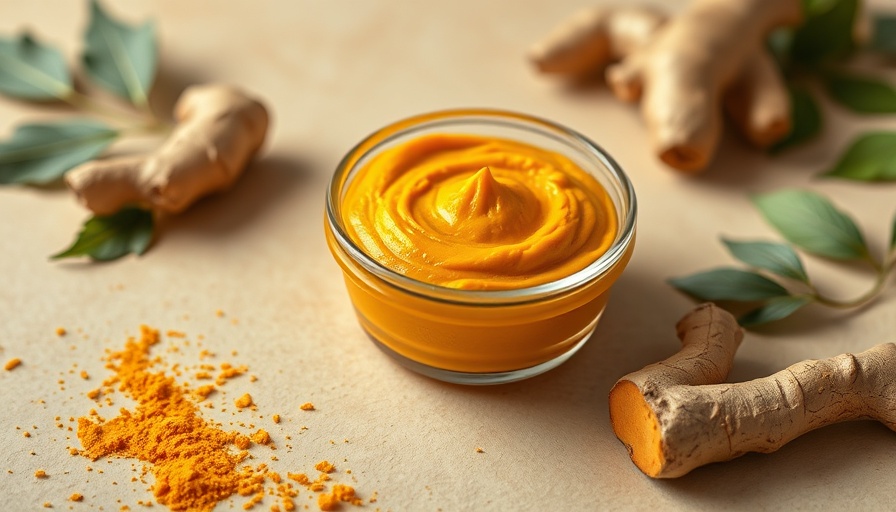
Turmeric: Nature's Answer for Joint Pain?
For those grappling with chronic knee pain, often stemming from osteoarthritis, finding effective relief can feel like an uphill battle. Recent research, especially a notable study published in the Annals of Internal Medicine, shines a promising light on turmeric, a common kitchen spice, as a potential remedy. As we delve deeper into this topic, it's essential to not only understand the scientific backing behind turmeric's efficacy but also how it can integrate into our health and lifestyle.
Understanding the Science Behind Turmeric
The study in question involved 70 participants suffering from symptomatic knee osteoarthritis. Half of the participants were given a placebo, while the other half received Curcuma longa extract, known as turmeric. Over 12 weeks, researchers closely monitored changes in pain and swelling through questionnaires and MRIs. The outcome was significant; participants taking turmeric reported a noticeable reduction in knee pain compared to those on the placebo.
It's important to acknowledge that while turmeric showcased substantial pain relief, it did not seem to affect joint swelling or cartilage structure. Nonetheless, the results align with growing national interest in natural remedies for arthritis symptoms. Approximately 15 million adults with arthritis experience severe pain, showcasing the potential impact of easy-to-access treatments like turmeric.
The Broader Implications of Natural Remedies
Integrative health approaches increasingly advocate for combining traditional medicine with alternative methods. The use of turmeric, rich in curcumin, extends far beyond joint pain relief; it has been lauded for anti-inflammatory and antioxidant properties. This positions turmeric not just as a dietary supplement, but as a proactive health ally that can complement proper medical care.
Comparative Effectiveness: Turmeric vs. Common Treatments
In contrast to traditional pain relievers typically prescribed for arthritis, such as NSAIDs, the findings on turmeric suggest a more holistic approach to pain management. While conventional medications can carry side effects and complications, turmeric offers a lower-risk alternative for many. Some research indicates that turmeric could work as effectively as traditional anti-inflammatories, but without the adverse effects.
Incorporating Turmeric into Daily Life
Adopting turmeric into one’s diet is straightforward. It can be easily added to meals, consumed as a supplement, or taken in teas. For those unsure how to start, here are a few suggestions:
- Turmeric Golden Milk: A delightful drink made with milk (dairy or plant-based), turmeric, and spices like ginger and cinnamon.
- Curries and Soups: Adding turmeric to your cooking not only enhances flavor but also adds health benefits.
- Capsules and Extracts: For those seeking concentrated doses, turmeric supplements are readily available.
Future Directions: Research and Considerations
The promising results from the aforementioned study encourage further exploration into turmeric's benefits. Future research might focus on its long-term effects, optimal doses, and potential interactions with other medications. Perspectives from healthcare professionals underscore the value of evidence-based treatments and personalized approaches in managing arthritis pain, positioning turmeric as a supplemental option worthy of exploration alongside conventional therapies.
The Bigger Picture: Embracing a Health-Conscious Lifestyle
As individuals increasingly seek out holistic approaches to health, the dialogue surrounding natural remedies like turmeric is likely to grow. Given that chronic pain affects a large portion of the population, embracing these alternatives may not only provide relief but also educate the public on pain management. In turn, understanding the integration of lifestyle, diet, and natural supplements into health regimes might empower individuals to take charge of their well-being.
Mindful of the study's insights, anyone considering turmeric as part of their health regimen should consult with healthcare professionals to tailor a strategy that fits their unique needs. Proper guidance ensures safe and effective use, maximizing the benefits this golden spice can offer.
 Add Row
Add Row  Add
Add 




Write A Comment